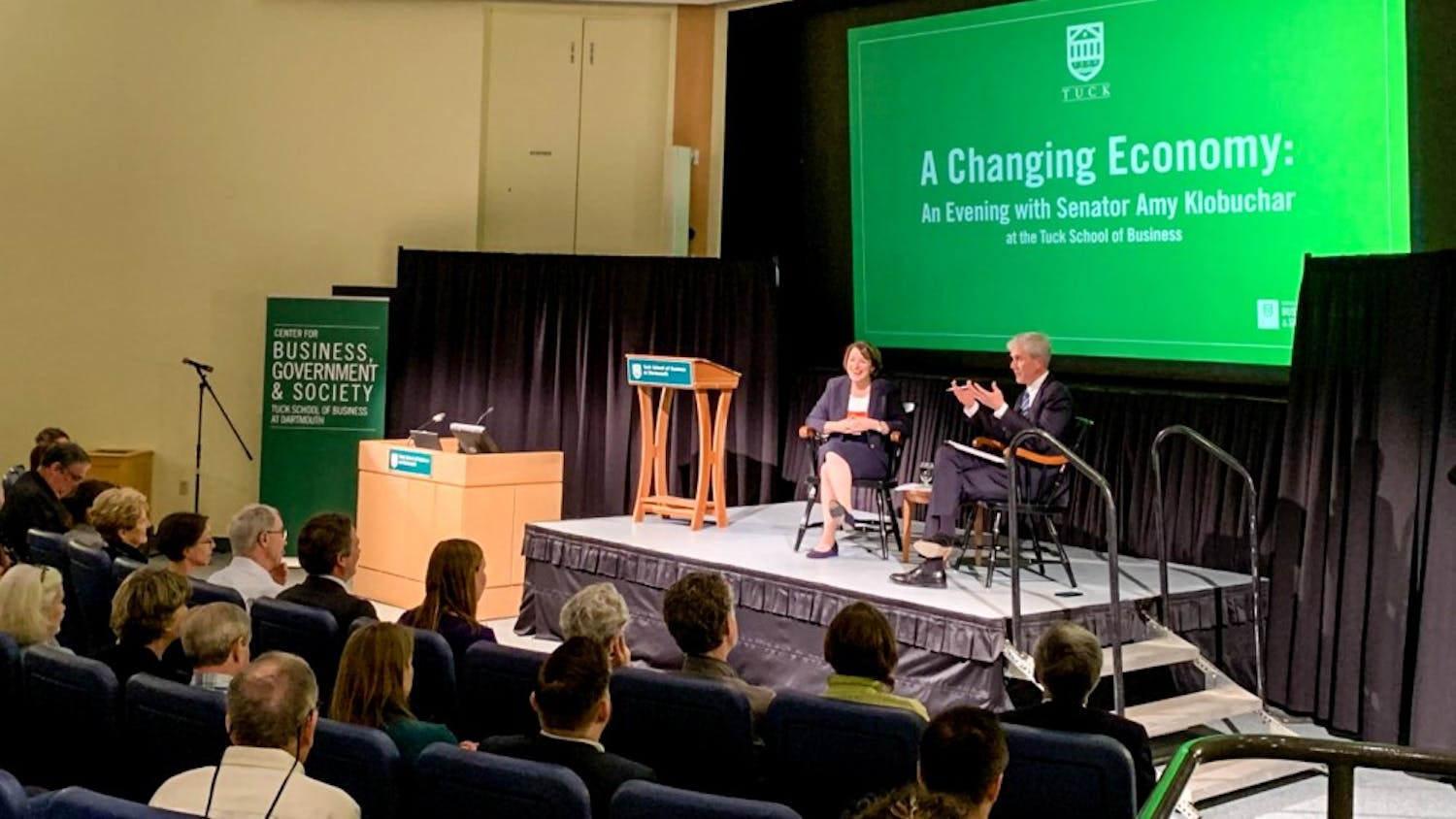Two weekends ago, I eagerly gathered my snowboard, snow pants and puffy parka and boarded the shuttle bus to the Dartmouth Skiway to participate in my first-ever snowboarding class. Upon reaching the Skiway, I noticed the barren mountains, void of the fluffy white blanket of snow that would normally be present this time of year. What’s more, as soon as we began moving around outside, we began to sweat with almost no level of physical exertion. It was the middle of January in New Hampshire — and yet, we were sweating.
Now granted, it’s difficult to tie any one weather event to global warming. But on Jan. 12, temperatures in Concord soared to 67 degrees Fahrenheit, smashing the previous record-high of 61 degrees. That record had stood since 1885. And this was no freak event — New Hampshire’s climate has warmed by about 2.6 degrees since 1895.
Globally, 2019 was the second-warmest year on record. Just this week, Australia’s smoke-choked skies are turning blood-red as wildfires continue to burn. Yet ironically, while the problem of climate change worsens, our country’s actions seem increasingly indifferent to the consequences.
President Trump — who railed this week at the World Economic Forum against “perennial prophets of doom” who advocate for climate action — rang in the new year by scaling back National Environmental Policy Act rules, with a stated rationale of speeding up infrastructure projects by ending the environmental assessments that are done to ensure the sustainability of these projects.
The National Environmental Policy Act has existed for decades and serves as one of the founding documents of environmental law. It prevented environmentally reckless actions by ensuring that all branches of government consider environmental ramifications prior to initiating any federal action aimed at changing the environment. But now, our president has gutted the act.
After fulfilling his campaign promise to withdraw the United States from the Paris Climate Accords in 2017, Trump has continuously worked toward repealing decades worth of environmental protections. In 2019 alone, the President decreased regulations on methane, repealed Obama-era clean water regulation, weakened the Endangered Species Act and put in place a host of other actions aimed to reduce environmental constraints on fossil fuel and other major industries.
While Trump initially proposed that “the concept of global warming was created by and for the Chinese in order to make U.S. manufacturing non-competitive,” the President has recently gone back on his prior statement. He now claims — at least sometimes — that climate change is a serious issue. Yet it remains highly unlikely that his environmental policy repeals will cease. The main challenge to any sort of environmental protection under this administration lies with Trump’s fundamentally flawed view of how climate interacts with the economy.
Trump’s claim to fame comes from his business background. He promises to restore American manufacturing and defend America’s economic superiority. The coal industry has been a significant supporter of Trump’s campaign and presidency, and the President’s policies favoring industrial redevelopment over sustainable development have endowed him with strong support from major businesses. These ideals, coupled with the President’s strong industrial backing, are compounded by the impending election, where the President must showcase his continued commitment to the American economy in the hopes of reelection.
However, what Trump doesn’t realize is that economic growth is not a tradeoff with sustainable development. Battling climate change is not a zero-sum game. Last April, for the first time in our country’s history, the U.S. generated more energy from renewable sources than from coal. That’s hardly put a damper on the economy; the GDP growth rate remains consistent, and unemployment is at its lowest point in decades thanks in some part to the 110,000 new jobs in renewable energy added in 2018 alone. And besides, coal and other resource-intensive development involves the use of finite resources. If we want to promote a stable economy, renewable resources provide a far more resilient option for long-term growth compared to fossil fuels.
While fixing the economy — at least for those who, like Trump, see economic progress as inseparable from environmental degradation — may seem more pertinent than fixing our planet, climate change is not just a problem for future generations. The wildfires in Australia, droughts in California, shrinking ice sheets and multitude of other environmental problems highlight the immediate and detrimental effects that climate change is having on our planet and its inhabitants. If we continue to repeal decades worth of progress, the planet, and perhaps our economy, will reach its tipping point.
In many cases, true economic development goes hand-in-hand with fighting climate change. Trump fails to see that, and in doing so, he threatens both our environment and our economy. There’s no point in economic “progress” through industrial redevelopment if we won’t be around to experience it. This time, we did start the fire, and it’s our responsibility to put it out.



